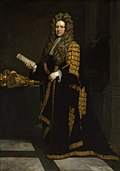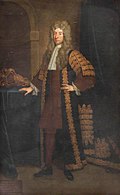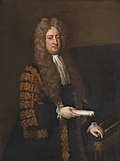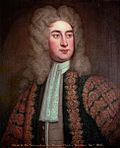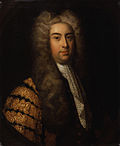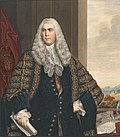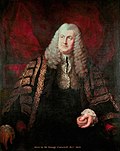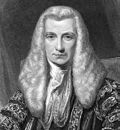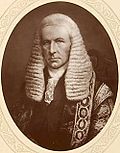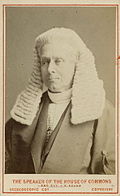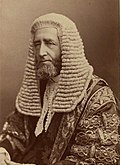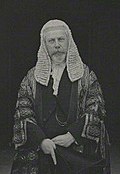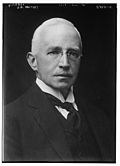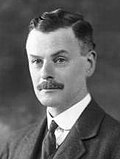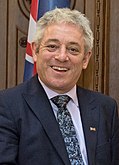
The Palace of Westminster is the meeting place of the Parliament of the United Kingdom and is located in London, England. It is commonly called the Houses of Parliament after the House of Commons and the House of Lords, the two legislative chambers which occupy the building. The palace is the centre of political life in the United Kingdom; "Westminster" has become a metonym for the UK Parliament and the British Government, and the Westminster system of government commemorates the name of the palace. The clock bell in the Elizabeth Tower of the palace, nicknamed Big Ben, is a landmark of London and the United Kingdom in general. The Palace of Westminster has been a Grade I listed building since 1970 and part of a UNESCO World Heritage Site since 1987.

Hansard is the transcripts of parliamentary debates in Britain and many Commonwealth countries. It is named after Thomas Curson Hansard (1776–1833), a London printer and publisher, who was the first official printer to the Parliament at Westminster.

Charles Manners-Sutton, 1st Viscount Canterbury, was a British Tory politician who served as Speaker of the House of Commons from 1817 to 1835.

The House of Lords Act 1999 is an Act of the Parliament of the United Kingdom that reformed the House of Lords, one of the chambers of Parliament. The Act was given Royal Assent on 11 November 1999. For centuries, the House of Lords had included several hundred members who inherited their seats ; the Act removed such a right. However, as part of a compromise, the Act did permit ninety-two hereditary peers to remain in the House. Another ten were created life peers to enable them to remain in the House.
The Committee of Public Accounts is a select committee of the British House of Commons. It is responsible for overseeing government expenditures, and to ensure they are effective and honest. The committee is seen as a crucial mechanism for ensuring transparency and accountability in government financial operations, having been described by Professor the Lord Hennessy as "the queen of the select committees...[which] by its very existence exert[s] a cleansing effect in all government departments".
The Defence Select Committee is one of the Select Committees of the House of Commons of the United Kingdom, having been established in 1979. It examines the expenditure, administration, and policy of the Ministry of Defence and its associated public bodies, including the British Armed Forces. The Committee's remit does not generally review Defence Intelligence which instead falls under the Intelligence and Security Committee of Parliament.
The Levelling Up, Housing and Communities Committee is a select committee of the House of Commons in the Parliament of the United Kingdom. The remit of the committee is to examine the work, the expenditure, administration and policies of the Department for Levelling Up, Housing and Communities (DLUHC) and its associated public bodies.
The International Development Committee is a select committee of the House of Commons in the Parliament of the United Kingdom. The remit of the committee is to examine the expenditure, administration and policy of the international aid functions of the Foreign, Commonwealth and Development Office and public bodies which work with the Office in relation to international aid and official development assistance. The Independent Commission for Aid Impact reports to this Select Committee.
The Environment, Food and Rural Affairs Select Committee (EFRA) is a select committee of the House of Commons in the Parliament of the United Kingdom. The remit of the Committee is to examine the expenditure, administration and policy of the Department for Environment, Food and Rural Affairs and its associated public bodies.

The Scottish Affairs Select Committee is a select committee of the House of Commons in the Parliament of the United Kingdom. The remit of the committee is to examine the expenditure, administration and policy of the Office of the Secretary of State for Scotland, and relations with the Scottish Parliament. It also looks at the administration and expenditure of the Advocate General for Scotland.
The Education Select Committee is a select committee of the House of Commons in the Parliament of the United Kingdom. The remit of the committee is to examine the expenditure, administration and policy of the Department for Education and any associated public bodies.
In the United Kingdom, confidence motions are a means of testing the support of the government (executive) in a legislative body, and for the legislature to remove the government from office. A confidence motion may take the form of either a vote of confidence, usually put forward by the government, or a vote of no confidence, usually proposed by the opposition. When such a motion is put to a vote in the legislature, if a vote of confidence is defeated, or a vote of no confidence is passed, then the incumbent government must resign, or call a general election.
The Science, Innovation and Technology Select Committee is a select committee of the House of Commons in the Parliament of the United Kingdom.
The federation of Stoke-on-Trent was the 1910 amalgamation of the six Staffordshire Potteries towns of Burslem, Tunstall, Stoke-upon-Trent, Hanley, Fenton and Longton into the single county borough of Stoke-on-Trent. The federation was one of the largest mergers of local authorities, involving the greatest number of previously separate urban authorities, to take place in England between the nineteenth century and the 1960s. The 1910 federation was the culmination of a process of urban growth and municipal change that started in the early 19th century.
The Backbench Business Committee of the British House of Commons was created on 15 June 2010 through the adoption of a new standing order. It was created soon after 2010 general election, but had been proposed during the previous Parliament by the Wright Committee on Reform of the House of Commons in its report of 12 November 2009.
In the United Kingdom, a parliamentary by-election occurs following a vacancy arising in the House of Commons. They are often seen as a test of the rival political parties' fortunes between general elections.
The 1904 City of London by-election was a parliamentary by-election held in England on 9 February 1904 for the House of Commons constituency of City of London.

The Eleventh Parliament of Great Britain was the parliament of the Kingdom of Great Britain that sat from 31 May 1754 to 20 March 1761. It was assembled following the general elections held in April–May 1754.
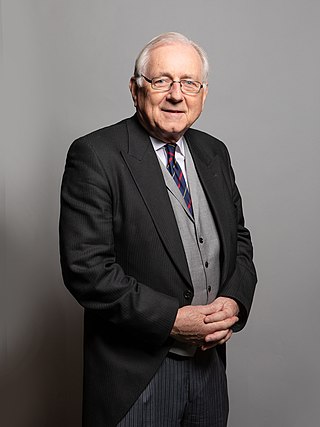
The father of the House is a title that is bestowed on the senior member of the House of Commons who has the longest continuous service. If two or more members have the same length of current uninterrupted service, then whoever was sworn in earliest, as listed in Hansard, is named as Father of the House.

The 1817 election of the Speaker of the House of Commons occurred on 2 June 1817.
